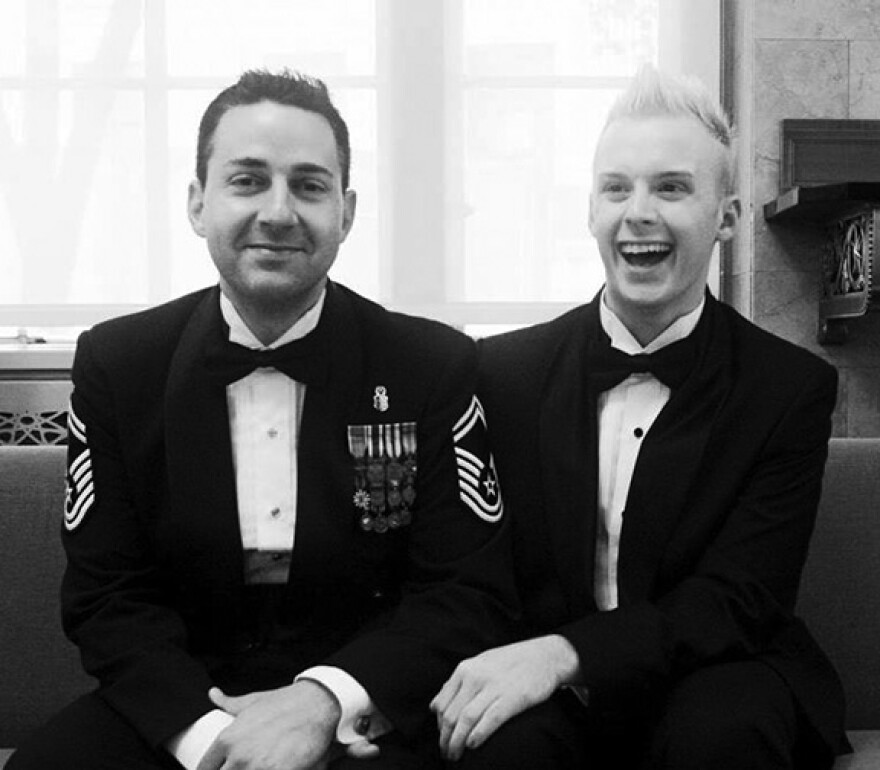In the Air Force, there’s no higher enlisted level than what’s called E-9, and those who achieve E-9 are honored with their loved ones at a lavish ceremony. But for many LGBTQ service members and their partners, the military has not been inclusive.
Today on Veterans’ Voices, Chief Master Sergeant Vince Ladner of Dayton tells us about his induction during the time of Don’t Ask Don’t Tell.
Transcription:
Vince Ladner: You know, one thing about the military is that it’s all about your family. And that’s a constant topic of discussion. In fact, your superiors would think it’s weird if they didn’t know your spouse’s name and if you had kids, and all that kind of stuff.
You had all these people living in a situation where they couldn’t be free and open and talk about their spouses like everybody else. And it’s not necessarily that they wanted to flaunt, if you will, a homosexual relationship. They couldn’t even answer questions honesty.
You know, to keep from being that person that didn’t say anything about your spouses and kids, a lot of people ending up making up stories so that it didn’t sort of raise that suspicion of, why doesn’t this person doesn’t talk about their boyfriend, girlfriend, husband, wife, sort of thing. If someone saw you that also knew that you were in the military, that could end your career.
I guess I sort of got used to it. But I met Joshua and he was definitely not used to that. And being with me, he was having to re-closet himself in a lot of ways. And I knew it wore on him a lot. He had to constantly think, oh, I can’t hold his hand right now, or whatever it is.
So here I am, about ready to pin on E-9. And for this ceremony, not only are you recognized, but also your spouse, family members, all that kind of stuff. And this was the most significant career milestone for me in my career, making this ultimate rank. Part of the set up for the ceremony was that you would enter with your significant other, go through a sword line, give your significate other flowers, and all that kind of stuff, and then go sit in your seats and the rest of the ceremony was all about the inductees. So for everyone else, what that meant was that their girlfriend, or their husband, or wife, or whatever was gong to walk up there and be introduced by name, and everything else. Their contributions would be acknowledged and then they’d go sit down. But for me, Joshua wasn’t going to able to do that. We’ve talked a little bit, but I’m not quite sure how it affected him personally. But I know how it affected me personally.
I think for the most part that people change faster than institutions. You still have people being harassed or annoyed because they’re different. Where there’s a whole lot of issues still in the military and in the civilian world is transgender individuals. It’s still something easy for a normative population to point at and say, that’s different, and how can this be? and is this natural? And all the same arguments you’d hear about sexual orientation, or race, or anything else is now being directed toward transgender individuals.
Veterans' Voices is supported by Wright-Patt Credit Union. Will Davis produced this series as part of Community Voices.




